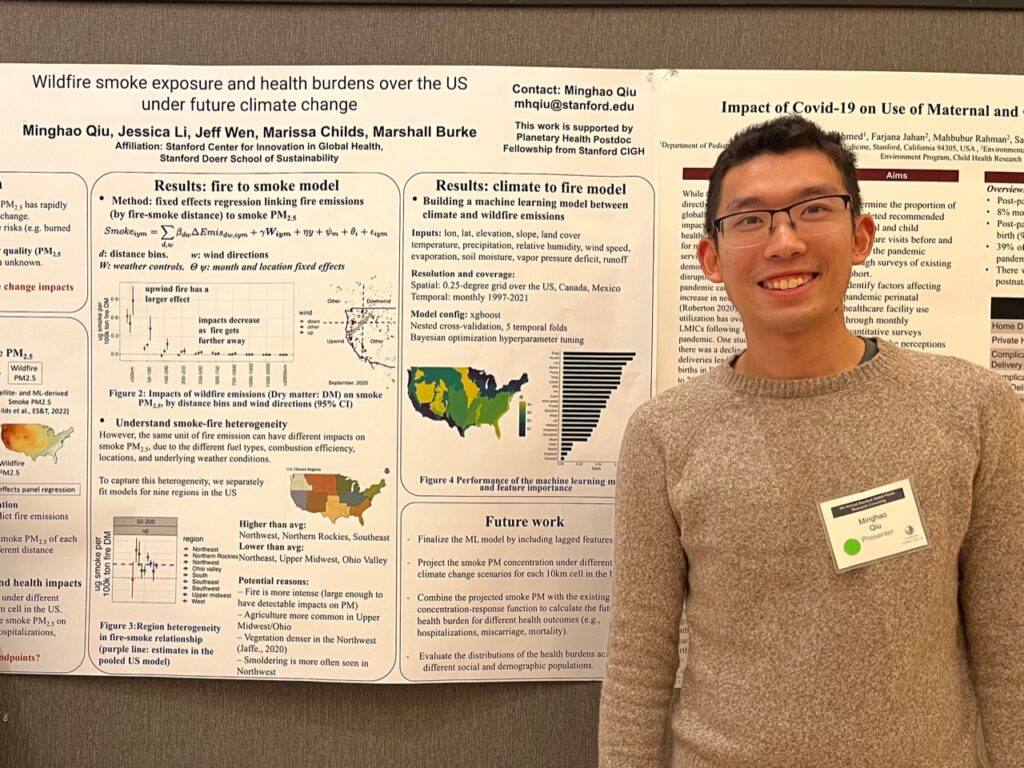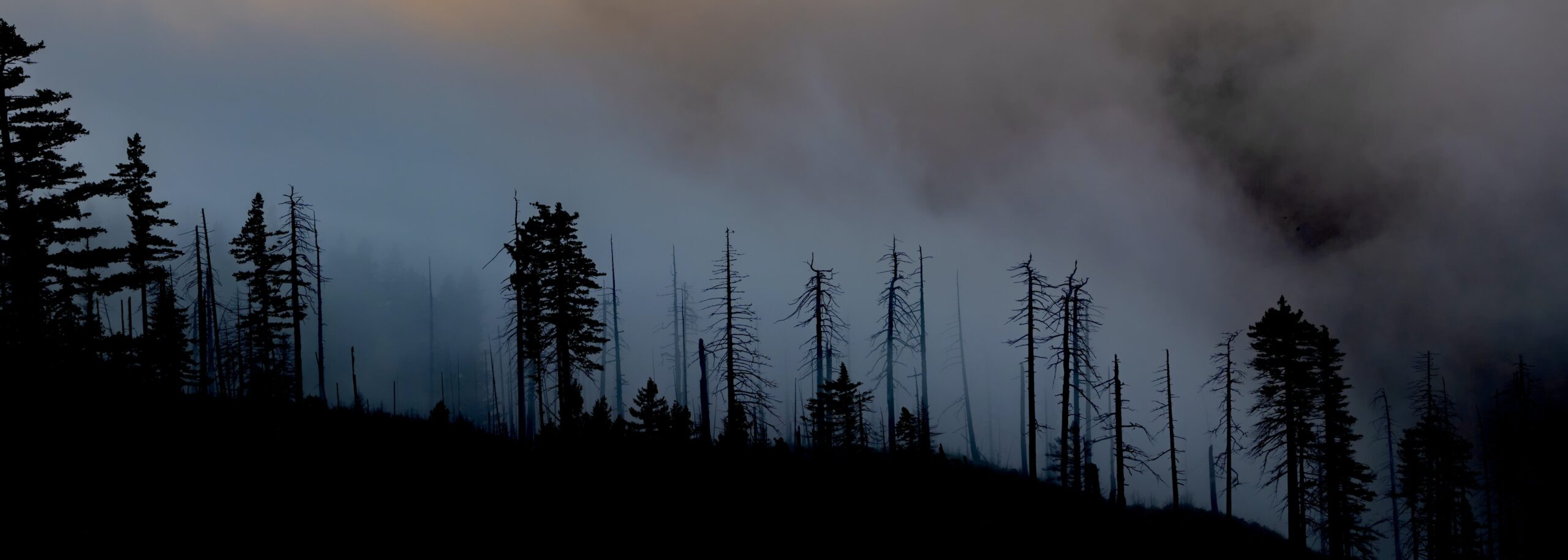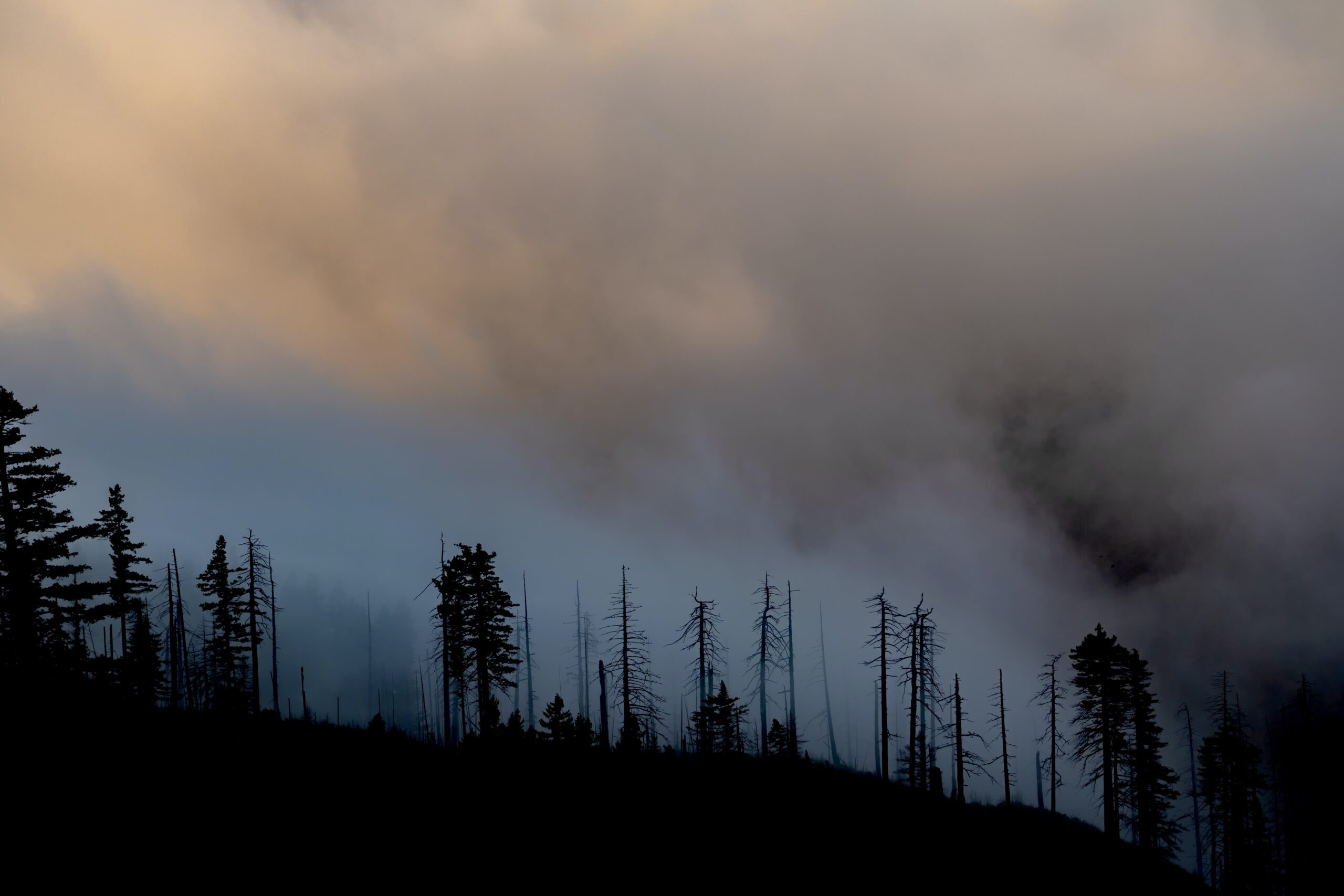Published: 08/24/2023
A conversation with Planetary Health Postdoctoral Fellow Minghao Qiu on how climate change drives air pollution and harms human health
By Jamie Hansen, Communications Manager
As our climate changes, we know that air pollution from wildfire smoke will get worse. But how much worse—and what will it mean for our health?
These are questions that guide the work of Minghao Qiu, PhD, a Planetary Health Postdoctoral Fellow hosted by the Stanford Center for Innovation in Global Health in collaboration with the London School of Hygiene and Tropical Medicine. He’s spent his fellowship year in the lab of Marshall Burke, PhD, modeling how climate change might influence air pollution levels—and how increased air pollution from wildfires, dust, and the burning of fossil fuels might affect people’s health.

This summer, he published a study finding that drought in the Western US drives increased reliance on fossil fuels for energy as water for hydropower dries up. This leads to increased air pollution and deaths from poor air quality, he and his colleagues found.
Now, he and Burke are investigating the relationship between climate change, air pollution, and health on a national and global scale.
One project will assess how climate change will influence the amount of particulate matter pollution from wildfires in the United States. They hope to show how various levels of air pollution, under different global warming scenarios, will impact diseases and death.
“One thing we know for sure is that wildfire smoke is really bad for respiratory diseases such as asthma,” he said. “I’m interested in quantifying this and understanding who is most vulnerable under climate change. We hope these findings can have huge impacts on how communities protect themselves against future wildfire smoke.”
An even larger undertaking just underway aims to assess the global impacts of climate change on all particulate matter pollution, including that from wildfires, dust, and fossil fuel emissions.
“It’s going to be really challenging, but we feel this urgency because most current assessments of the cost of climate change do not include air pollution,” Qiu said. “We see this as a huge understatement of the societal cost of carbon emissions.”
In the fall, Qiu will join Stony Brook University as an assistant professor shared between the School of Marine and Atmospheric Sciences and the Program of Public Health. He says his year as a planetary fellow has helped him prepare for this work at the intersection of climate change and human health.
Qiu spoke about his timely research and what we’re learning about the connections between climate change, pollution, and health.
You’re an environmental scientist by training, working in a lab focused on environmental impacts—yet this fellowship is based in the Stanford School of Medicine. How has this interdisciplinary fellowship informed your research?
Through this fellowship, I’ve had many interactions with School of Medicine faculty and public health experts. I’ve caught up with cutting-edge evidence on how air quality affects various aspects of human health. As a result, I’ve been able to make my research more practical and applicable for medical providers and public health practitioners.
I’ve also discovered new dimensions of my research through such interactions. For instance, my colleague Alandra Lopez, also a Planetary Health Postdoctoral Fellow, investigates how chemicals in soil can end up in wildfire smoke and cause negative health outcomes. So not only does the quantity of smoke matter—its composition does too. This is something I wouldn’t have been thinking about if I hadn’t had a chance to work so closely with Alandra.
What’s the most surprising thing you’ve learned?
I’ve been really surprised by the magnitude of the changes in air pollution levels caused by wildfires. About one-third of all particulate matter pollution in the United States now comes from wildfire smoke—wildfires that are more intense and common because of climate change. For the western U.S., that number is closer to 50 percent.
I’ve been really surprised by the magnitude of the changes in air pollution levels caused by wildfires. About one-third of all particulate matter pollution in the United States now comes from wildfire smoke—wildfires that are more intense and common because of climate change. For the western U.S., that number is closer to 50 percent.
Minghao Qiu
It’s interesting to think about this in the context of all air pollution in the U.S. Over the past few decades, overall air quality had improved dramatically due to the Clean Air Act. But a forthcoming publication by Marshall Burke shows that the progress made by the Clean Air Act is now being reversed due to the increase in wildfires.
Your work surfaces some grim findings on how increasing drought and wildfires will harm our collective health and well-being. What gives you hope?
We’re quantifying how bad the problem is, but I hope this work can ultimately inform how people respond. As this situation gets worse and worse, people are becoming much more aware and interested in finding solutions. For instance, the wildfire smoke affecting the Midwest and East Coast this summer has spurred a lot of attention and interest in addressing this challenge.
How do you hope your research might help our response to climate change?
I think my work can be useful in two broad areas: adaptation and mitigation.
Adaptation is important because at this point we’re stuck with this problem for at least a few decades, even if we take quick action to reduce carbon emissions. Carbon dioxide lives in the atmosphere for a while, and this means temperatures will keep rising for at least 10–20 years. We need a better understanding of the scope of the pollution and the health risks to inform new policies and protective measures such as wearing masks, and the installation of filters in homes and schools.
Minghao Qiu, PhDCarbon dioxide lives in the atmosphere for a while, and this means temperatures will keep rising for at least 10–20 years. We need a better understanding of the scope of the pollution and the health risks to inform new policies and protective measures such as wearing masks, and the installation of filters in homes and schools.
Mitigation is important as well. First, we need policies for better land management to reduce the risk of disastrous wildfires. To fundamentally address the causes of climate change, we need to understand the costs and benefits of taking action — and conversely, of doing nothing. Our work reveals some large costs of inaction, and hopefully, this can help influence conversations about reducing greenhouse gas emissions.

